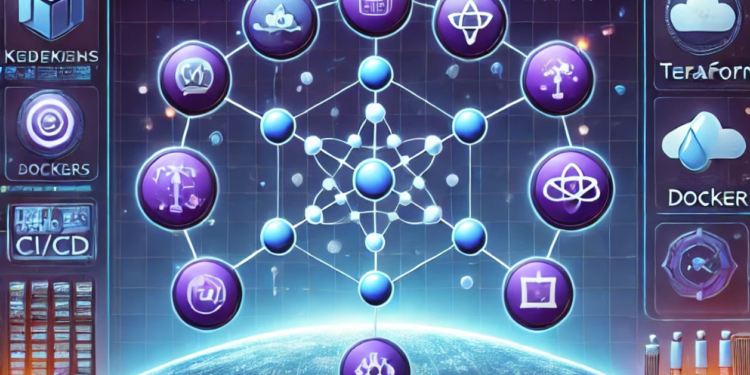DevOps continues to revolutionize software development by bridging the gap between development and operations teams. Automation plays a crucial role in ensuring efficiency, reliability, and scalability in DevOps workflows. As we enter 2025, several tools stand out in the DevOps ecosystem for their automation capabilities. Here’s a look at the best DevOps automation tools for 2025.
1. Terraform (Infrastructure as Code)
Terraform, an open-source tool by HashiCorp, remains a leader in Infrastructure as Code (IaC). It allows teams to define infrastructure using declarative configuration files, enabling consistent, repeatable provisioning across cloud environments like AWS, Azure, and Google Cloud.
2. Ansible (Configuration Management)
Ansible is a powerful, agentless automation tool for configuration management and application deployment. With its simple YAML-based playbooks, it helps streamline complex IT workflows, making it an essential tool for DevOps teams looking to automate provisioning and configuration.
3. Jenkins (CI/CD Automation)
Jenkins continues to be a go-to tool for Continuous Integration and Continuous Deployment (CI/CD). With its vast plugin ecosystem, Jenkins automates build, test, and deployment pipelines, making software delivery faster and more reliable.
4. GitHub Actions (CI/CD & Workflow Automation)
GitHub Actions simplifies CI/CD workflows by allowing developers to automate testing and deployment directly within GitHub repositories. Its deep integration with GitHub makes it a popular choice for teams looking for seamless automation.
5. Kubernetes (Container Orchestration)
Kubernetes remains the industry standard for container orchestration, automating deployment, scaling, and management of containerized applications. Its robust ecosystem and scalability make it a must-have for DevOps teams handling microservices and cloud-native applications.
6. Prometheus & Grafana (Monitoring & Alerting)
Prometheus, an open-source monitoring system, coupled with Grafana for visualization, provides real-time insights into system performance. Together, they help DevOps teams monitor infrastructure health and detect issues before they escalate.
7. HashiCorp Vault (Secrets Management)
Security is a growing concern in DevOps, and HashiCorp Vault helps teams manage secrets, API keys, and sensitive data securely. It ensures encrypted storage and controlled access, reducing risks associated with credential exposure.
8. ELK Stack (Elasticsearch, Logstash, Kibana) (Logging & Analysis)
The ELK Stack provides centralized logging, making it easier to analyze logs, identify errors, and optimize system performance. As observability becomes a priority, ELK remains a key tool for log management.
Conclusion
Automation is at the heart of modern DevOps practices, and the tools listed above are among the best for 2025. Whether it’s infrastructure as code, CI/CD, monitoring, or security, these tools enhance efficiency, reduce manual effort, and streamline software delivery. As DevOps continues to evolve, leveraging the right automation tools will be essential for maintaining a competitive edge.

















